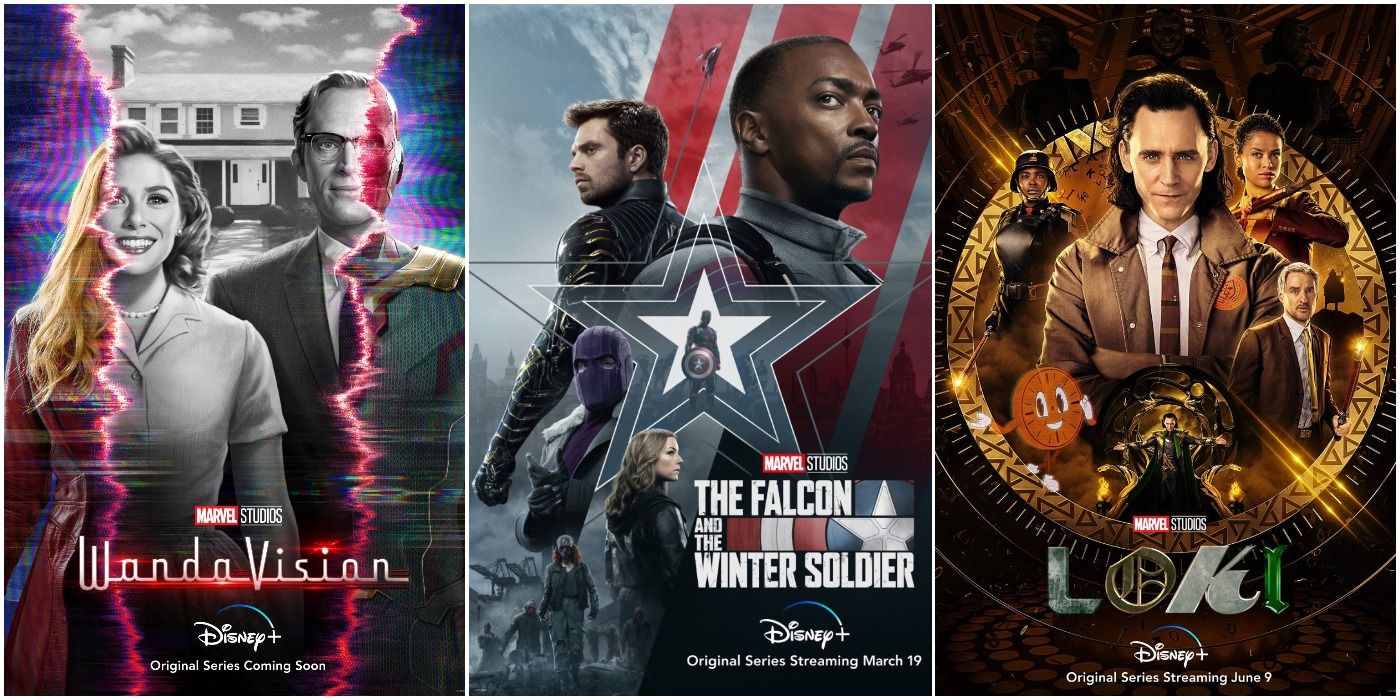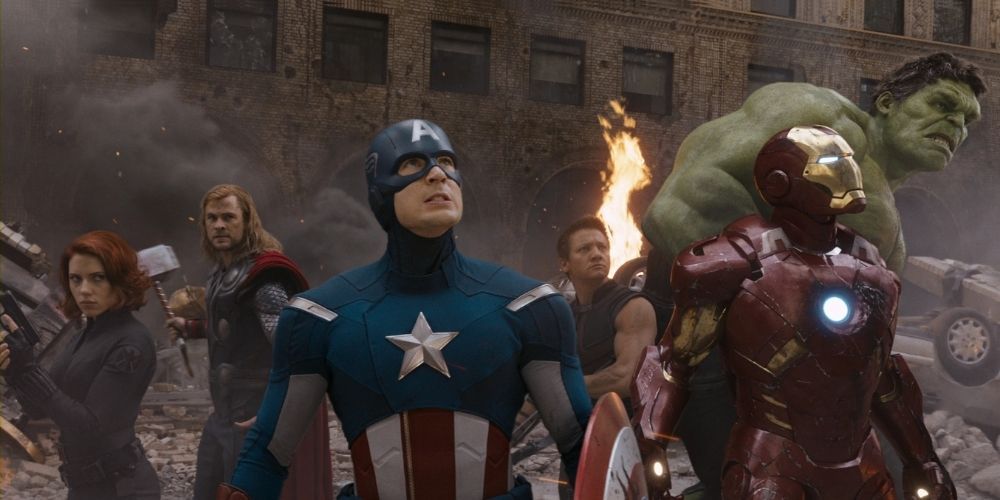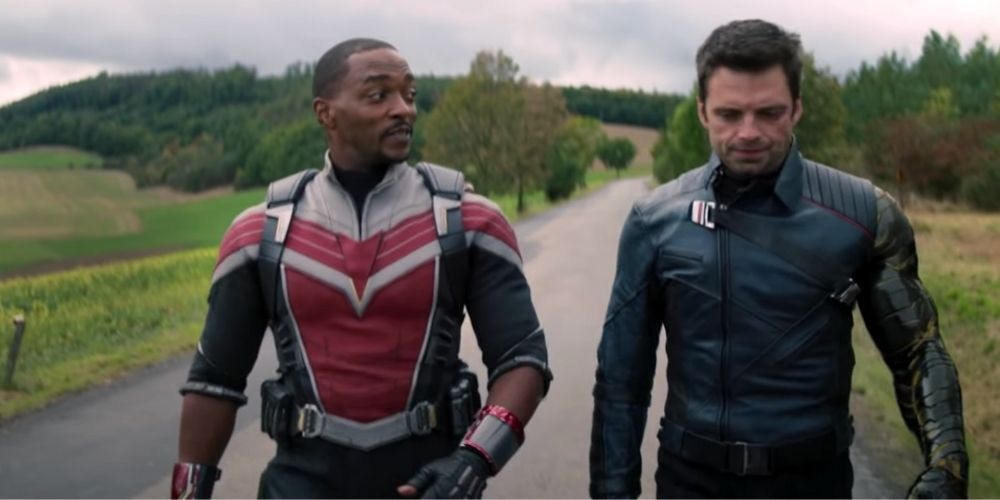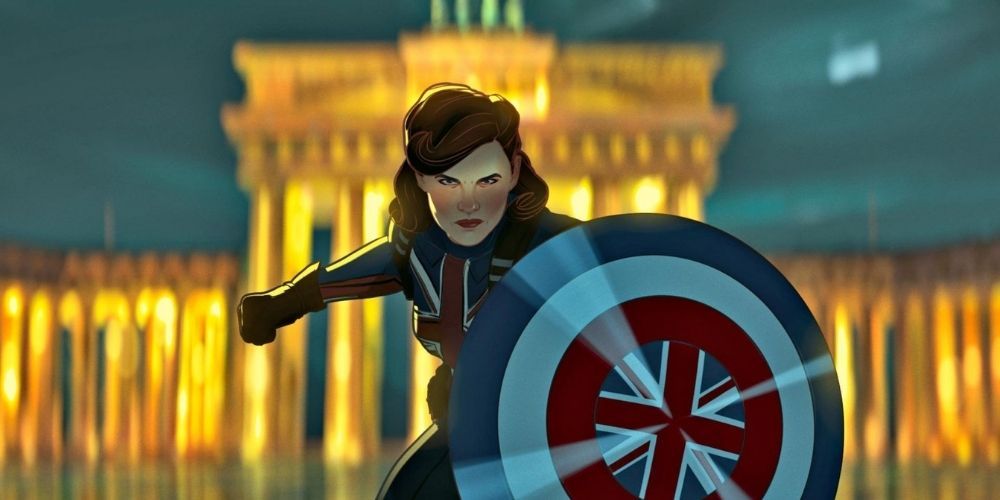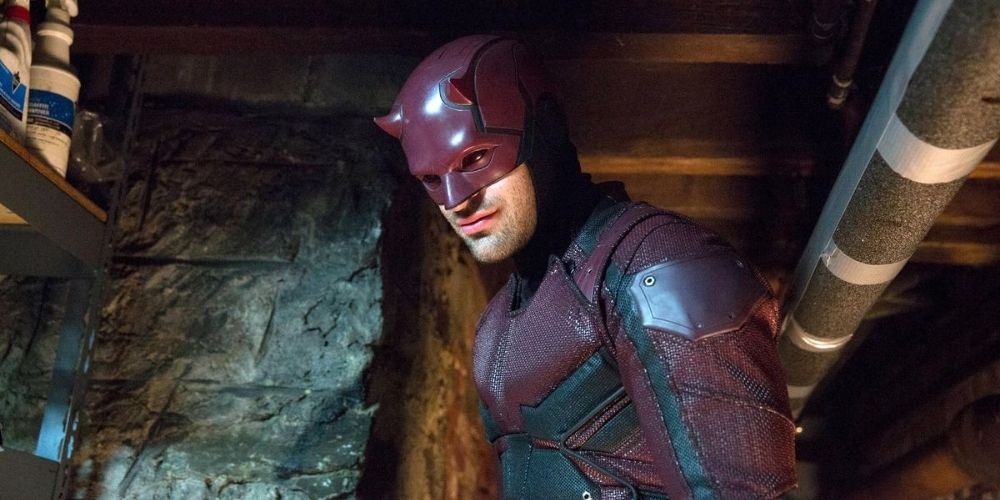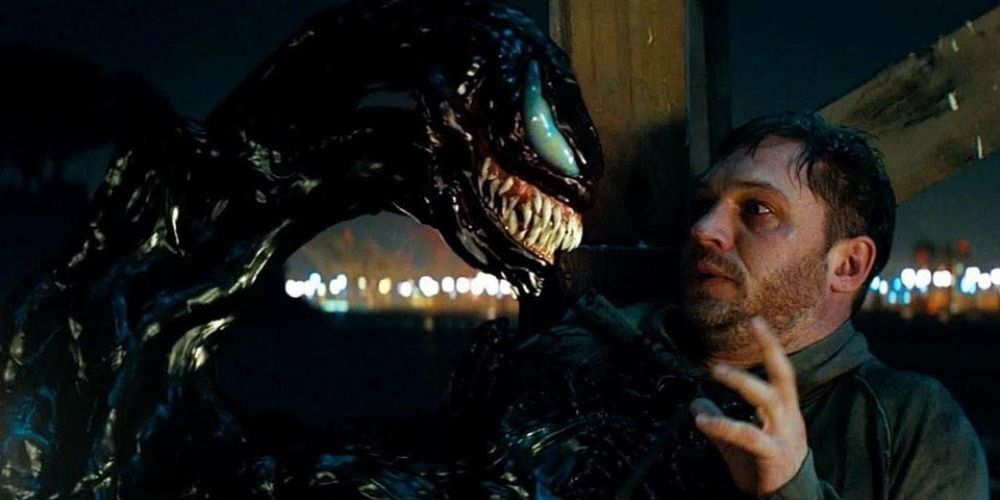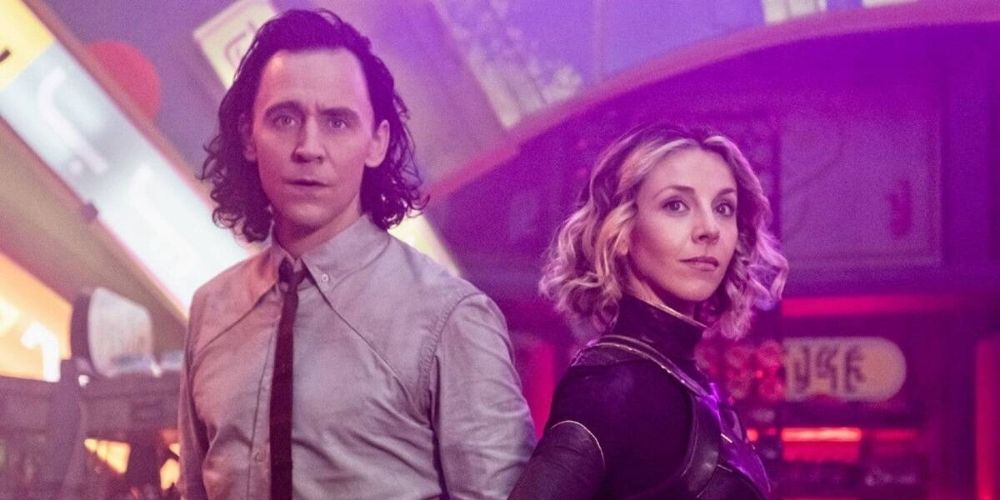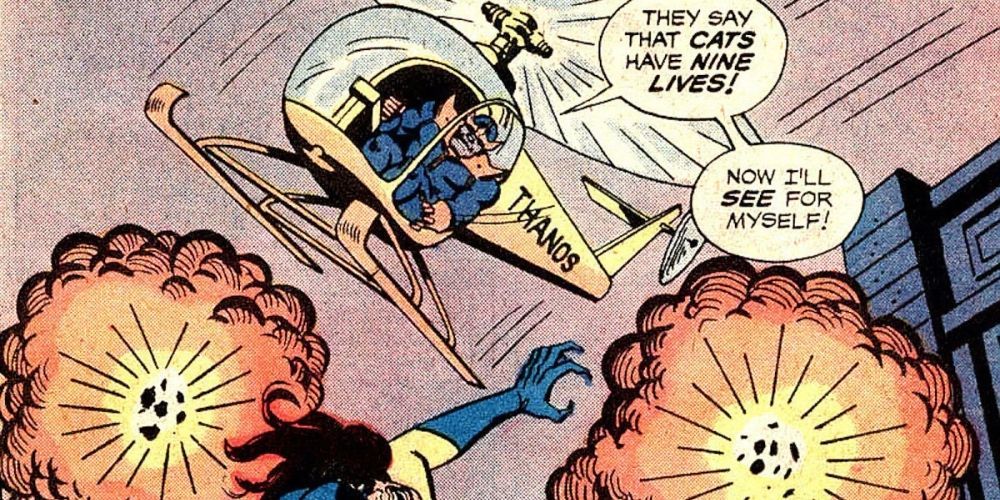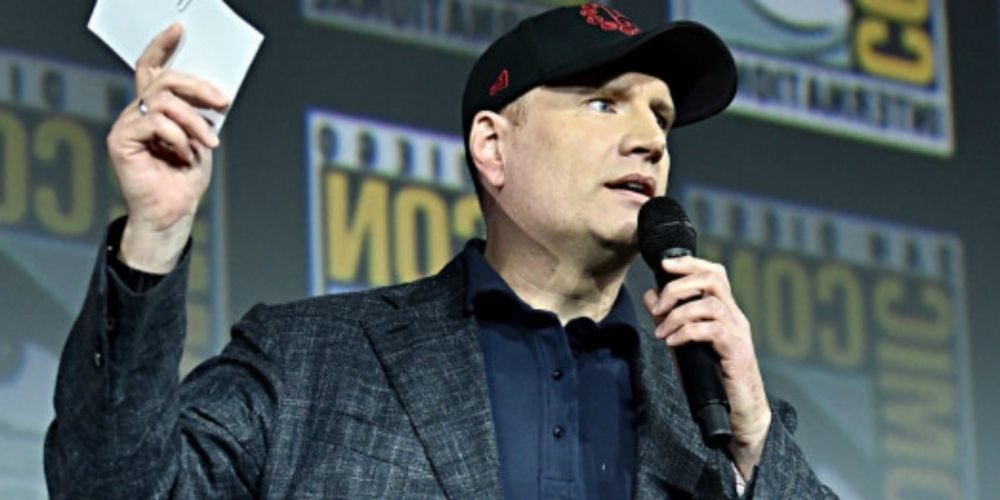When Disney first entered the streaming wars in 2019 with their premium service Disney+, viewers found a treasure trove of classics awaiting them in the service's library. However, what Disney+ lacked was new properties, giving streaming giants like Netflix an edge during the service's freshmen days.
But Disney+ came with the promise of new properties, hoping to keep a large portion of its target audience with iconic franchises like Star Wars and the Marvel Cinematic Universe. For the MCU, Disney's streaming service came at an optimal time, allowing the franchise to spin its properties into miniseries as its vast universe continues to expand into Phase Four.
10 Traditional TV Simply Can't Reach The MCU's Worldwide Audience
The MCU has become the world's largest cinematic universe. While Marvel superheroes have long existed on the comic book page, the movie industry has given these super-powered characters a worldwide following.
Because the MCU has garnered such a vast following, Marvel Studios has the daunting challenge of ensuring that each new story they share reaches the largest audience possible—something traditional TV cannot do. With streaming Marvel can share their properties with the many fans of the world.
9 Audiences Can Find Most Of The Canonical MCU Titles In One Place
Being the largest cinematic universe in the world, it's difficult for the casual viewer to keep track of everything that has happened in the MCU thus far. Disney+ offers viewers a brief reprieve from having to scour the web for every entry in the franchise, save for The Incredible Hulk and Spider-Man properties.
Those wishing to refresh themselves on the tumultuous history of the Winter Soldier or the profound story of the Falcon before watching The Falcon and The Winter Soldier can do so by revisiting the Captain America movies on Disney+. For those with not as much time to spare, Marvel Studios: Legends gives viewers short synopses of the titular characters for their respective miniseries.
8 Disney+ Gives Marvel Studios Space To Experiment With The Weird
Traditional TV is systematically designed to engage specific groups. Content fluctuates to meet the expectations of both producers and audiences, leaving little room for obscure or genre-breaking shows. As a streaming platform, Disney+ changes the content game.
Marvel Studios has a clear desire to scratch a creative itch by experimenting with the weird in Phase Four. WandaVision breaks norms with a play on traditional TV sitcoms that slowly reveals why Wanda and Vision are in Westview. Likewise, What If...? is the first animated canonical entry that explores the wilder side of the MCU's newfound multiverse.
7 Marvel Can Allocate Blockbuster Budgets To Shows On Disney+
There have been multiple reports that the MCU mini series aired on Disney+ cost up to $25 million to make an episode. Since each series typically ranges from six to nine episodes, the total budget comes in at around $150 million to $225 million, which is an equivalent cost to a blockbuster film.
By comparison, the average network drama in the U.S. typically costs $2-3 million an episode, which is peanuts to the budget Disney sought to allocate for these Marvel titles. The only show in recent history that's come close to this sort of budget is HBO's Game of Thrones. Even then, it was reported that the final season only cost about $15 million an episode.
6 A-List Actors Would Be Hard-Pressed To Act For The Small Screen
On the topic of budgets, it's difficult to imagine the likes of Robert Downey Jr. or Scarlett Johansson filming extensively for the small screen for a significantly reduced paycheck. If Marvel Studios wants to maintain actor continuity between the big and small screen, they need a paycheck to back it up.
Consequently, this may be one of the reasons why MCU movie stars never showed up in Netflix's Marvel series like Daredevil, Luke Cage, and Jessica Jones. In fact, it was officially confirmed that these series weren't part of the MCU canon when Phase Four began. But there might still be hope for fans of these series; rumors have been swirling that actors like Charlie Cox might return in upcoming Marvel projects.
5 The MCU Miniseries Are Designed To Be Uninterrupted Episodes
One of the most blessed aspects of streaming service is that audiences can watch their shows without the constant annoyance of commercials and advertisements. There is nothing more irritating about traditional TV—the average thirty-minute episode is doubled in time with ads and commercial breaks, making for frustrating and lengthy viewing. Ironically, the lack of commercials inversely allowed the creative leads of WandaVision to insert their own Easter egg-laden ads.
4 Traditional TV Forces Marvel To Share Their Properties With Others
When it comes to sharing, Disney is not one to typically play nice. After buying Marvel Entertainment in 2009, Disney would acquire other massive properties such as Lucasfilm and 21st Century Fox. Of course, the latter of these acquisitions allows Marvel Studios to bring the Fantastic Four and X-Men into the fold.
Something notable about the MCU up to this point is that it has remained self-contained, with the exception of Spider-Man. Even then, Marvel has been resistant about canonizing Sony's Venom as part of the MCU. Likewise, the Netflix Marvel series have been dispelled from the canon. It stands to reason that Disney and Marvel would be less than keen on outsourcing their properties to other TV networks.
3 Audiences Cannot Watch Shows When They Want On Traditional TV
Perhaps one of the greatest pitfalls with traditional TV is that viewers cannot watch shows whenever they want to. This is problematic for a franchise as momentous and expansive as the MCU. Given Marvel's plan to release several miniseries each year, it can be quite the task for audiences to keep up with the steady stream of new content.
Given the design of the miniseries thus far as multi-part movies, missing even one episode means missing a major piece of the plot that the subsequent episode will likely build upon. Someone who watches episode three of Loki, but skips episode four, will be vastly confused by how Tom Hiddleston's God of Mischief went from Lamentis-1 to the void where Alioth roams.
2 The MCU Miniseries Typically Demand More Than One Viewing
On that note, the consigned showing times of traditional TV often mean it is even more challenging to rewatch a show. If a viewer misses a critical scene or wants to revisit an episode, they'll have to catch another show at a later date. As a streaming service, Disney+ rids viewers of this annoying issue.
MCU shows are littered with Easter eggs and references for the eagle-eyed viewer. Loki, in particular, offers more than its fair share—including Roxxcart, which shares an implied connection to the nefarious Roxxon, and Thanos's infamous helicopter. Multiple viewings also facilitate further discussion among the fanbase. Enter the Mephisto theories.
1 With Disney+, There Is One Creative Head To Rule Them All
The move to feature the MCU miniseries on Disney+ does more than simply consolidate the many MCU titles in one place. It is more than Disney not wanting to share its prize properties with others. By reducing both platform and network, Marvel Studios can keep the massive, sprawling story of the MCU in check.
While creative heads of the MCU miniseries are given relatively free jurisdiction on what their respective shows are about, there is still the overarching narrative—envisioned by studio president Kevin Feige—that they must adhere to. And, if Sylvie's actions at the end of Loki are any indication, then the future of the MCU promises to be a wild one.

